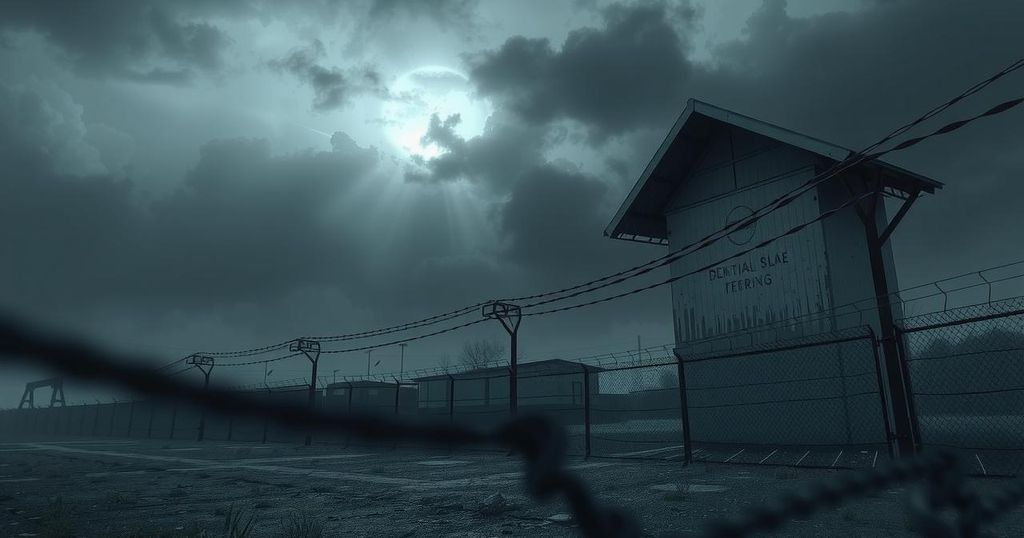Trump Administration Considers Controversial Deportation Plan to Libya

The Trump administration is considering a plan to deport migrants to Libya, despite severe human rights concerns over detention conditions. Human rights groups have condemned the facilities as inhumane, while U.S. travel advisories highlight the dangers in Libya. Ongoing challenges and criticisms may impact the execution of these deportation plans.
The Trump administration has reportedly crafted plans to deport migrants to detention facilities in Libya, which has raised serious concerns among human rights advocates. According to a report by Reuters, the nationalities of migrants targeted for deportation are still unclear. Human rights organizations have pointed out that Libya is engulfed in conflict and have strongly criticized the conditions in its detention centers, labeling them as “horrific” and “deplorable.”
Libya has gained a notorious reputation for its migration detention centers, depicted by Amnesty International as a “hellscape”. A 2021 report paints a grim picture of detainees facing torture, sexual violence, forced labor, and even instances of slavery. The U.S. State Department’s recent annual human rights report echoed these sentiments, describing life in Libya’s detention centers as “harsh and life-threatening.”
One official disclosed that the Trump administration was considering multiple countries for deportation, with Libya being one of them. However, it remains uncertain if an agreement with Libyan authorities to accept deportees has been finalized. The complexities of executing such plans loom large as bureaucratic, legal, and diplomatic hurdles may arise.
The State Department has issued a Level 4 travel advisory for Libya, discouraging Americans from traveling there due to severe risks, including crime, terrorism, and civil unrest. This move aligns with the administration’s broader strategy to deter migrants from attempting to enter the United States, sending a warning to those illegally residing in the country.
Challenges could arise during the deportation process, especially after criticism faced by the government for sending Venezuelan migrants to El Salvador, where they currently find themselves detained in a prison meant for terrorists. Modifications in the deportation plan may be necessary given these factors, raising questions about who would indeed be sent to Libya and the conditions they would face upon arrival.
Recently, Secretary of State Marco Rubio addressed the matter at a Cabinet meeting at the White House, stating, “We are actively searching for other countries to take people from third countries… not just El Salvador. We want to send you some of the most despicable human beings, will you do that as a favor to us?” He emphasized the administration’s preference for relocating detainees to countries far from U.S. borders to prevent their return.
As the situation unfolds, many will be watching closely to see how these plans proceed amidst the significant backlash and the complex realities on the ground in Libya.
Overall, the proposed deportation plan reflects the administration’s ongoing attempts to address immigration issues amid criticism, emphasizing the need for thoughtful consideration of human rights.
In summary, the Trump administration is contemplating the deportation of migrants to Libya, where conditions in detention centers have been condemned by multiple human rights organizations. The bureaucratic complexities involved, along with risks associated with travel to Libya, add layers of controversy to this plan. If carried out, it raises significant moral and humanitarian questions regarding the treatment of deported individuals in war-torn regions. Future developments will likely be scrutinized as debates around immigration policy continue.
Original Source: m.economictimes.com




